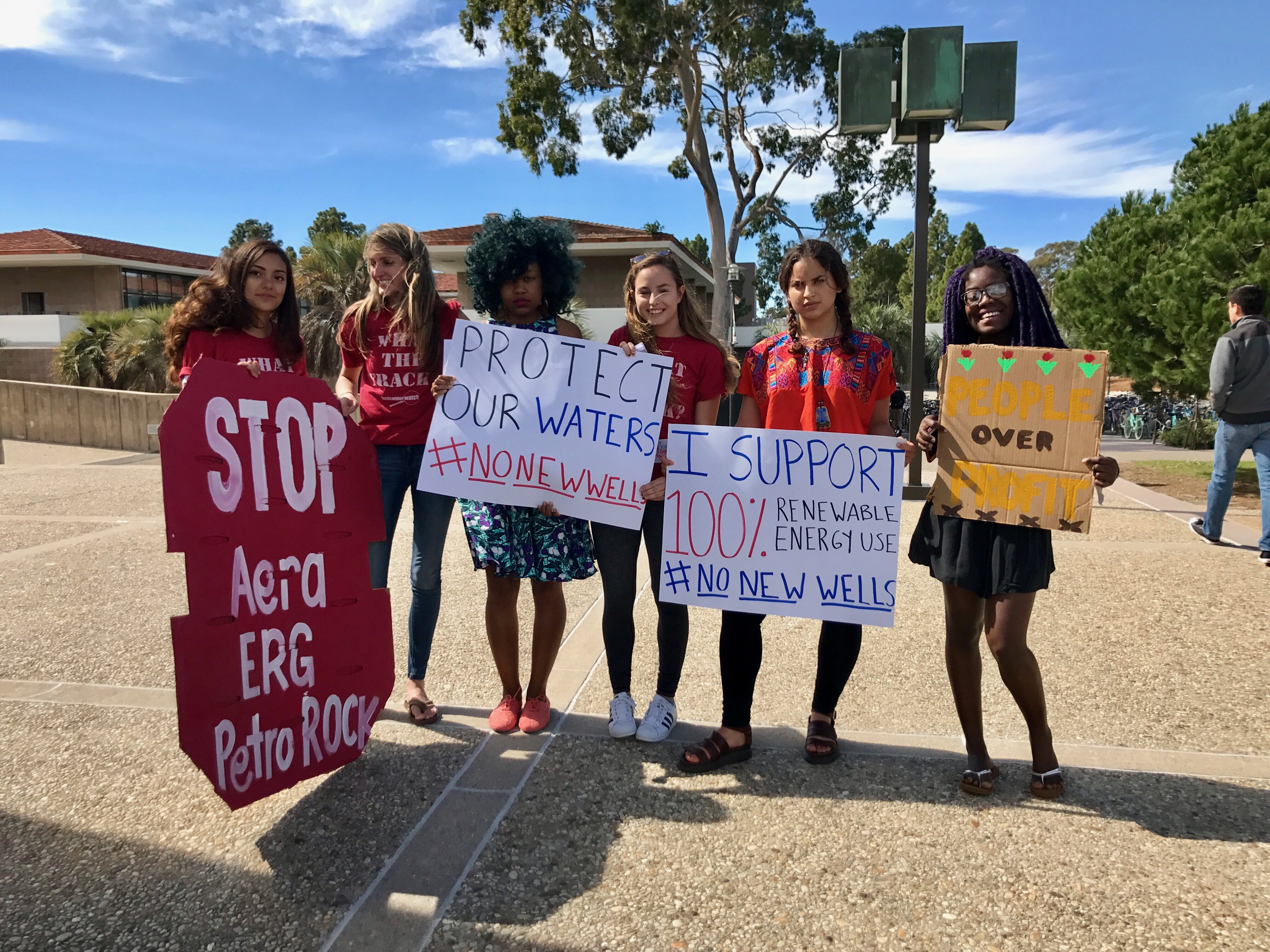Oil Protest at UCSB

“Does anyone here breathe air?” asked Jason Dominguez, Santa Barbara city councilmember, over a loudspeaker at a rally this afternoon at UCSB against “Dirty Oil.”
The rally was to “show our elected officials that we are behind them in a transition to 100 percent renewable energy,” said rally organizer Alena Simon of Food & Water Watch, wearing a shirt that read “What the Frack.”
Dirty Oil is a term used to represent unclean fossil fuel drilling techniques such as steam injection, steam flood, and offshore fracking, according to Simon.
She said oil companies Aera Energy, ERG (Energy Reserves Group), and Petrorock Energy are proposing to build more than 750 new oil wells in the county onshore. Environmentalists, elected officials, and students voiced opposition to this today on the lawn near Storke Tower.
Katie Davis, president of Sierra Club Los Padres, said education is a big part of the fight against fossil-fuel energy sources. What may seem like a slow-moving problem is “happening in a geologic flash,” she said. “The climate is changing faster than species can adapt.”
“Natural disasters are no longer entirely natural,” she said.
Wendy Motta of Congressmember Salud Carbajal’s office affirmed human interference in climate change. She spoke about Carbajal’s California Clean Coast Act, which would permanently ban future drilling off the California coast.
Dominguez suggested ramping up standards of energy sources in homes and buildings to reduce our carbon footprint.
Cameron Gray, transportation and climate specialist of the Community Environmental Council, also endorsed transitioning to solar energy. He celebrated that the county has installed one billion watts of solar energy, which is enough to power 300,000 homes.
Gray also applauded the “amazing leadership at the state level” that works to eliminate the use of fossil-fuel oil extraction. He cited Senate Bill 584, which if passed, would move up the target date for 50% of all retail electricity generated from renewable energy resources from 2030, to 2025, with 100% by 2045. Gray also cited Ready for 100, which challenges a hundred cities across the country to switch to 100 percent renewable energy.
Risks of local contamination as well as global climate change can be expected if the proposal to build 750 wells gets passed, said Emily Williams, a UCSB grad student focusing on environmental justice. She compared these risks to a drunk college student who takes three more shots of tequila before leaving a party. “You can’t guarantee that something bad will happen to the person, but the risk is significant, and I wouldn’t take my chances,” she said.
The rally was organized by Food & Water Watch, CALPIRG, Fossil Free UCSB, Climate Justice Hub, Santa Barbara Student Activist Network, and the Environmental Affairs Board.


